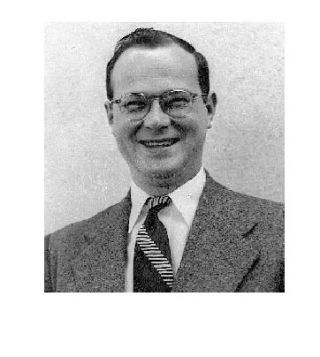“It was a deviation,” said Lopez Islander, Dudley “Six” Lapham. “Basic city manager work is the everyday grind of making sure people don’t shoot each other or burn a house down, taking care of the streets, the sewer, the water department, public works, picking up the trash, all pretty mundane stuff, and it was so much fun to switch from that,” Lapham said as he discussed his last full-time position as Manager of the Monterey Regional Water Pollution Control Agency. “Their sewer system was bad. It had grown up with cannery row and little entities polluting the south end of Monterey Bay. An amalgamation of seven cities including Pacific Grove, Salinas, and Monterey, the Army, Navy, state, and other organizations received a grant through the Clean Water Act to upgrade the sewer system. The end result was our building a huge new water pollution control treatment plant with reclamation of water. We were brand new to the agency and we made it work. It was a very satisfying job. I was there for the basic planning and consulted for years, even after I retired in 1980.”
Born in Montana in 1921, Lapham’s family followed his father’s teaching positions from Crane, Oregon, where the population was so scattered they had a dorm for the students, to a professorship at Whitman College in Walla Walla, Washington. Lapham graduated from Washington High School in Portland, Oregon, and attended Reed College for a couple years before entering the Army during World War II. He returned to Reed following his time in the service and then on to Pomona College in Claremont, California. “The post-war boom pulled people to southern California. It’s a typical story for people born about the time I was,” said Lapham.
He held managerial positions in several California cities. “Long Beach was the most interesting because of their special attributes including a harbor, a port, oil wells, airport, convention hall, marina, band—things not found in most cities. Crazy things happen in a town like that. There was a special problem in the harbor. Shoreline oil drilling created some subsidence in the earthen pier areas. Solutions were complex and controversial.” Lapham said. “I was younger and able to shrug off the arrows when they came booming at me. It was fun,” a phrase he added with a smile and a twinkle to many events he discussed. “I took public administration seriously but it can be pretty dry. Finally, I was teaching it.”
Although active and an office holder in many public administration organizations, Lapham discussed his volunteer activities with greater eagerness. He was a campground host in the Redwoods with the California Park Department. “That was pretty neat. A place to camp was the pay for leading groups through the Redwood paths or selling t-shirts at the information stand.” He took a special course in Marine Biology to become a guide at the Monterey Bay Aquarium. “It was a fascinating place to work.”
After 55 years of marriage, Lampham’s wife, Connie, had a severe stroke in the 90s. With daughter Rosie Sumner living on Lopez and a son in Seattle, the couple moved to the area seeking nursing home care for Connie before her passing. “I always thought of the San Juans as kind of magic. It’s a privilege to live here. It’s beautiful, people seem to care for each other, the values are literary, academic, and concerned for the environment. People move here because they want to live here, not just a result of happenstance.”
Now a resident of Hamlet House, Lampham is initiator and coordinator of the “Hamleteers,” a writing group dedicated to memoir and family history. “I’ve done a bit of writing for my own pleasure. I don’t care if anyone else reads it or not. We meet in the Gathering Place at 9:30 a.m. on the second Monday each of month. Everyone is welcome.
“I like it here,” Lampham said about living at Hamlet House. “With physical limitations, you know you have the security of backup but you’re on your own to the extent that you want to be. It’s much like your own home. Most similar places are institutionalized. I appreciate the approach taken by the community. Like so many things on Lopez, there’s a fundamental feeling of cohesiveness. This is the result of what can happen when people get their heads together. I’m just thoroughly happy with the results. They have improved the quality of a number of people’s lives by having seen it through.”
“My nickname, Six, came about when I started Reed College in 1939. The Outing Club sponsored a camping trip to introduce freshmen to upper classmen. We were on Mt. Jefferson and it was cold so I wore several layers including an athletic sweater with a big yellow ‘6.’ Someone said, ‘Hey, Six,” and it stuck. I thought it was kind of fun.”




